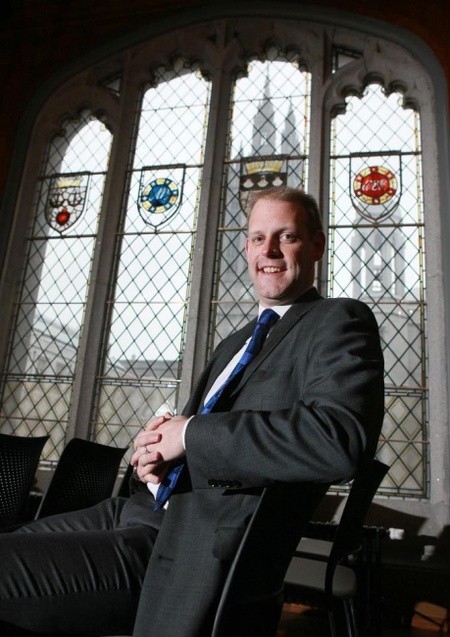Neil McLennan, Director of Leadership Programmes and Senior Lecturer, and a former Scottish Football Association qualified coach and former Senior List football referee, asks whether a fresh approach to management can benefit Scotland's national team.
The departure of Scotland’s football manager has seen newspaper reporters and football fans once again discussing leadership of the national team. Statistically Alex McLeish was the second most successful Scotland manager during his 2007 reign of 10 games (of which he won seven). The only manager with a 100% track record was caretaker manager Billy Stark in 2012. Stark managed the national team for one game and won it (Luxembourg 1 Scotland 2, November 2012), thus securing the record.
The media discussions this week have raised a number of key points relating to leadership. Firstly there has been a discussion as to whether McLeish could have achieved better results? In the current era, leadership is an area of intense interest and leadership is seen as of significance in bringing about results and improvement. For example, in education, leadership is often cited as being second only to learning in its importance in educational organisations. The recent emphasis on leadership raises a number of important issues. It can be seen as part of an agenda where those in power create and empower new leaders at different levels within the organisation by giving them both autonomy and accountability for results. With this in mind, are there issues that would support the Scotland manager which are perhaps outwith his ability to control? Are there issues which senior sports leaders, well above the national team manager, need to address to improve Scottish football? The other interesting insight is whether, by placing such emphasis on leadership, we are in fact returning to historic, initial leadership models. Early leadership models, largely formed by Scottish historian Thomas Carlyle emphasise “Great Man” theory whereby great leaders were born and naturally possessed a set of attributes and skills which made them effective and powerful leaders. Over time our understanding of leadership has evolved, especially in the latter part of the 20th century with the growth of management and then leadership studies. There is further work to be done in understanding the leadership dynamics of sports and also in the development of more nuanced leadership approaches.
Our thinking on leadership has, thankfully, evolved from “Great Man” and trait based models to a better understanding of the practice of leadership. We now appreciate both the role of the leader and their interactions with those within teams and organisations. Again within education, recent leadership models have focussed much on distributed leadership models (promoted in recent years by Professor Alma Harris). However even these models have been critiqued by others (notably in Scotland by Dr Deidre Torrance). There is certainly some appetite for a new approach to leadership. Whilst cooperative models such as David Erdal’s work, we see a totally different insight to how organisations might run. We might consider the potential results within a Scottish football context. In music and the arts, there have been conductress orchestras. Whilst I would not suggest a football team without a manager, could a more cooperative model work? Co-managers do exist and can work. At Lincoln City a duo of brothers have seen on the field performances and growth of attendances of the field. Likewise relationships with the manager/coach and an experienced Director of Football supporting at a more strategic level can and have worked. A very different approach saw the Scottish team chosen by a selection committee in the national team’s early years. Between 1872 and 1953 and again between 1954 and 1957 this model operated. The respective success rates were 60% and 43%. The results of this model are inconclusive when we consider the average success rate of a Scottish manager is 47%.
As Scotland seeks a new manager it might be worth some final cross sector leadership lessons. In his research work, our Principal, Professor George Boyne, researched the length of tenure of heads of government agencies. The research concluded that there had been a recent focus in bringing outsiders as agency managers from beyond central government. This raises some questions, would there ever be a manager from outwith the sphere in Scottish sport? Could outside leadership support and insight help Scottish football?
There is other research out there on the tenure of leaders inheriting perceived failing or successful organisations. Also there is research into effective transitions into leadership roles. Perhaps Scottish football could learn from linking theory with practice?
Online leadership short courses can be found here:- www.abdn.ac.uk/study/online


